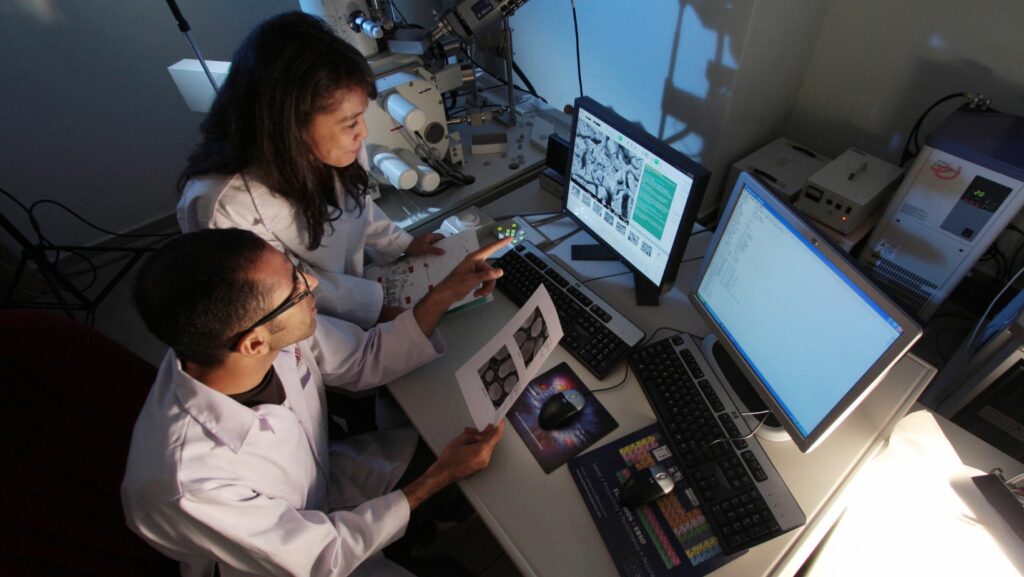Key Takeaways
- Bridging Theory and Practice: Industrial training for computer science students is crucial as it connects academic knowledge with real-world applications, preparing them for industry challenges.
- Hands-on Experience: Participating in training programs like internships, co-ops, and apprenticeships allows students to gain practical skills and exposure to contemporary technologies and tools.
- Skill Development: Industrial training enhances both technical skills (e.g., programming languages, software development) and soft skills (e.g., teamwork, communication) essential for workplace success.
- Increased Employability: Graduates with industrial training are significantly more attractive to employers, as 70% of companies prioritize candidates with practical experience during hiring.
- Networking Opportunities: Industrial training facilitates valuable connections with industry professionals and peers, increasing job prospects and referrals after graduation.
- Challenges to Consider: Students face difficulties in balancing work and study commitments and securing quality placements, highlighting the need for effective time management and proactive networking.
In today’s fast-paced tech landscape, industrial training for computer science students has become essential. With rapid advancements in technology, academic knowledge alone isn’t enough to prepare students for the challenges of the real world. Companies seek graduates who not only understand theoretical concepts but can also apply them in practical settings.
Industrial training bridges the gap between classroom learning and industry requirements. It equips students with hands-on experience, enhances their problem-solving skills, and boosts their employability. As the demand for skilled professionals continues to rise, engaging in industrial training can set aspiring computer scientists apart in a competitive job market.
Industrial Training For Computer Science
 Industrial training offers computer science students essential exposure to real-world applications of their academic knowledge. This training occurs in various formats, including internships, co-ops, and project-based experiences. These opportunities allow students to engage with industry professionals, enhancing their understanding of contemporary technologies and practices.
Industrial training offers computer science students essential exposure to real-world applications of their academic knowledge. This training occurs in various formats, including internships, co-ops, and project-based experiences. These opportunities allow students to engage with industry professionals, enhancing their understanding of contemporary technologies and practices.
Industrial training programs focus on practical skills that align with market demands. Students learn to navigate complex software development processes, engage in collaborative projects, and utilize industry-standard tools. For instance, students may work with programming languages such as Python or Java and development frameworks like React or Django.
Participating in industrial training fosters critical soft skills alongside technical competencies. Skills such as teamwork, communication, and time management develop as students work on projects in diverse teams. Such experiences prepare graduates for dynamic work environments, where adaptability and problem-solving are crucial.
Employers increasingly prioritize candidates with practical experience. Statistics show that 70% of companies consider internships a significant factor during the hiring process. Industrial training not only increases employability but also enables students to build professional networks vital for future career advancements.
Industrial training serves as a critical component of a computer science education. It bridges the gap between theory and practice, equipping students with the competencies necessary to thrive in the technology sector.
Importance of Industrial Training
 Industrial training plays a vital role in preparing computer science students for successful careers by bridging the gap between theoretical knowledge and practical application. Here’s a closer look at some key aspects. Skills development forms the foundation of industrial training. Training programs focus on enhancing technical skills, such as coding languages like Python, Java, and frameworks like React and Django. Students gain hands-on experience with tools and methodologies relevant to the industry, including version control systems and agile project management. Industrial training also nurtures essential soft skills, such as teamwork, problem-solving, and communication. Students develop these skills while collaborating on real projects, ensuring they are well-equipped for future workplace challenges.
Industrial training plays a vital role in preparing computer science students for successful careers by bridging the gap between theoretical knowledge and practical application. Here’s a closer look at some key aspects. Skills development forms the foundation of industrial training. Training programs focus on enhancing technical skills, such as coding languages like Python, Java, and frameworks like React and Django. Students gain hands-on experience with tools and methodologies relevant to the industry, including version control systems and agile project management. Industrial training also nurtures essential soft skills, such as teamwork, problem-solving, and communication. Students develop these skills while collaborating on real projects, ensuring they are well-equipped for future workplace challenges.
Real-World Experience
Real-world experience is a crucial component of industrial training. Students get the opportunity to work in real-time projects, allowing them to apply academic concepts in practical scenarios. Engaging with industry professionals exposes them to current technology trends, workplace culture, and industry expectations. This exposure enhances their adaptability, making them valuable assets to potential employers. Real-world experience differentiates graduates from their peers, as 70% of companies prioritize candidates with prior internship experience in hiring decisions. This practical engagement ensures graduates are not only knowledgeable but also ready to make immediate contributions to their organizations.
Types of Industrial Training Programs
Various industrial training programs offer computer science students essential exposure and experience in the tech industry. These programs help bridge the gap between theoretical knowledge and practical application.
Internships
Internships provide students with hands-on experience in a professional setting for a specific duration. Typically lasting three to six months, internships allow students to work on real projects, collaborate with experienced professionals, and gain insights into industry practices. Many organizations offer paid internships, which enhance student motivation and financial support. Engaging in internships significantly increases employability, with surveys indicating that 57% of interns receive full-time job offers from their hosting companies.
Cooperative Education
Cooperative education, or co-op programs, combine classroom studies with practical work experience. Co-ops often last longer than internships, integrating work terms into a student’s academic schedule. This arrangement allows students to alternate between periods of work and study throughout their degree programs. Co-ops enable students to build professional networks while gaining experience in their fields, often resulting in higher starting salaries upon graduation. Research shows that 60% of co-op participants report a positive impact on their career advancement due to the practical exposure gained during these programs.
Apprenticeships
Apprenticeships focus on industry-specific skills development through structured training and on-the-job learning. These programs typically last one to four years and combine practical work experience with theoretical training. Apprenticeships cater mainly to technical roles within the IT sector, offering students a chance to specialize in areas like software development or cybersecurity. Completion of an apprenticeship often leads to certification, making candidates more competitive in the job market. Statistics reveal that 85% of apprentices secure employment in their field after completing their programs, reflecting the effectiveness of this training method.
Benefits of Industrial Training for Students
Industrial training offers numerous advantages for computer science students, primarily enhancing their practical skills and employability prospects. By participating in real-world projects, students gain insights into the industry and establish valuable connections.
Networking Opportunities
Networking opportunities abound through industrial training programs. Students connect with industry professionals, peers, and mentors who can offer guidance and job prospects. Engaging in collaborative projects facilitates valuable relationships, helping students to expand their professional networks. These connections often lead to referrals and recommendations, significantly boosting the chances of securing employment after graduation.
Enhanced Employability
Enhanced employability represents a key benefit of industrial training. Students acquire essential skills that align with industry demands, making them more attractive to potential employers. Statistics show that graduates with relevant internship experience are 40% more likely to receive job offers compared to those without. Employers prioritize candidates who demonstrate hands-on experience, practical knowledge, and the ability to thrive in dynamic work environments. Through industrial training, students not only strengthen their resumes but also gain confidence in their abilities to contribute effectively in the workplace.
Challenges Faced in Industrial Training
Students in industrial training face various challenges that impact their experience and success. Two significant hurdles include balancing work and study commitments and obtaining quality placements.
Balancing Work and Study
Balancing work and study presents a significant challenge for students. Students often contend with demanding work schedules alongside their academic responsibilities, creating time management difficulties. Effective prioritization becomes essential as they navigate project deadlines while maintaining academic performance. Balancing these commitments can lead to stress, impacting both work quality and academic success. Implementing structured schedules and setting clear goals can help alleviate some of the pressure faced in this dual commitment.
Obtaining Quality Placements
Obtaining quality placements also poses a considerable challenge. Many students compete for limited internship and co-op positions, making it difficult to secure opportunities that match their skill sets and career aspirations. Students may encounter a lack of clarity in application processes, resulting in frustration. Additionally, geographic limitations can restrict access to high-quality companies and positions. Proactive networking and leveraging university resources can enhance the chances of finding suitable placements, ensuring alignment with career goals.
Industrial training is an invaluable asset for computer science students navigating the complexities of today’s job market. By engaging in hands-on experiences and real-world projects, students not only enhance their technical skills but also develop essential soft skills that employers seek.
The connections forged during these training programs can lead to significant career opportunities. As graduates emerge with practical knowledge and confidence, they position themselves as strong candidates ready to contribute to their future workplaces. Embracing industrial training ultimately equips students to meet industry demands and thrive in a competitive landscape.



